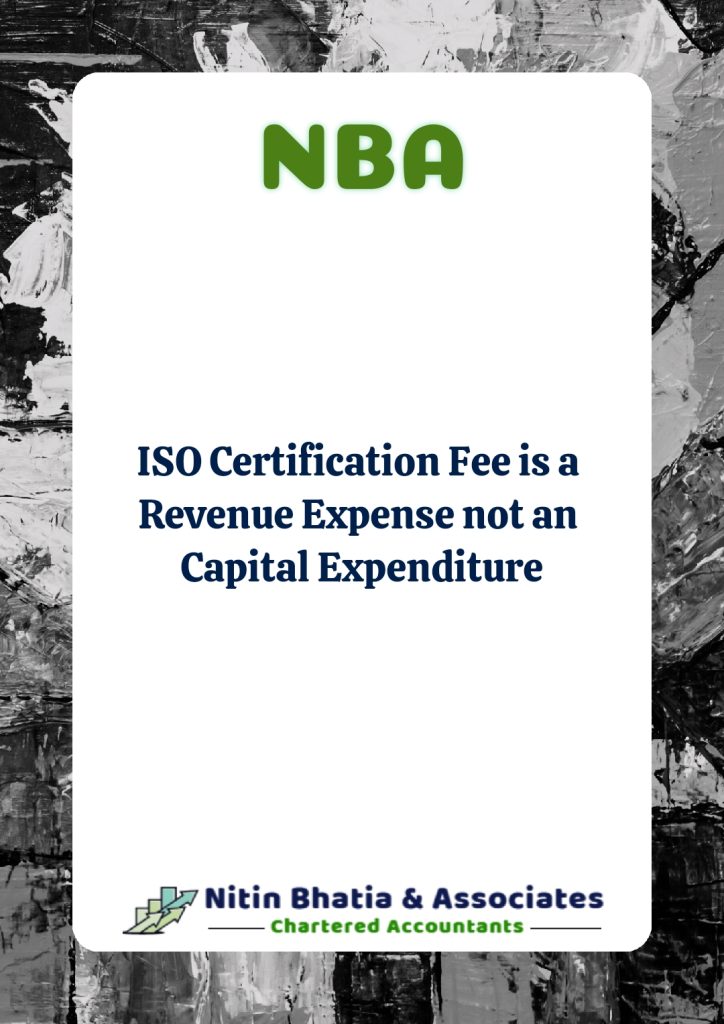
The Narmada Clean Tech Ltd. is a company engaged in the business of laying pipelines for the treatment of effluent from various industries and providing monitoring and treatment services for the same. The company claimed an amount of Rs. 27,39,668/- as the cost of obtaining ISO certification. However, the Assessing Officer disallowed the claim on the grounds that it should be considered as a capital expense as it would provide a long-term benefit to the company.
The Assessing Officer argued that the expenditure incurred in obtaining the ISO certificate did not touch the fixed capital of the company, but it may improve the image of the company’s product and thus help in the smooth conduct of business. The Assessing Officer therefore concluded that such expenses were to be treated as revenue expenditures.
The case was heard by the CIT (Exemptions) in favor of the assessee, Narmada Clean Tech Ltd. The court agreed with the assessee’s argument that the expenditure incurred in obtaining the ISO certificate was a revenue expenditure. The court noted that the payments made towards obtaining the ISO certificate did not add to the fixed capital of the company, but they did help to create a positive image for the company’s product, which in turn would help the company to conduct its business smoothly.
In conclusion, the court ruled that the expenditure incurred by Narmada Clean Tech Ltd. in obtaining the ISO certificate was a revenue expenditure and was eligible for deduction under the Income Tax Act. This decision serves as a positive precedent for companies that are looking to obtain ISO certification and are looking to claim the expenses incurred in doing so as a revenue expenditure. The decision highlights the importance of obtaining ISO certification for companies, as it not only helps to improve their image and credibility but also provides a framework for continuous improvement, which can help companies to stay ahead of their competitors
What is ISO Certificate?
ISO, the International Organization for Standardization, is a non-governmental organization that develops and publishes standards to ensure quality, safety, and efficiency in various industries. ISO certification is a formal recognition given to organizations that demonstrate compliance with ISO standards, which are voluntarily adopted by organizations around the world.
There are many different ISO standards, each addressing a specific area of quality management, such as environmental management, information security, and medical devices. For example, ISO 9001 is the most widely used standard for quality management and sets out the criteria for a quality management system, while ISO 14001 specifies requirements for an environmental management system.
To obtain ISO certification, an organization must undergo a rigorous assessment process to demonstrate its conformance with the relevant ISO standard. This assessment is performed by a third-party certification body that is accredited by an official accreditation body.
The benefits of obtaining ISO certification include improved efficiency, increased customer satisfaction, and enhanced credibility and reputation. ISO certification also helps organizations to identify and manage risks, improve processes, and reduce waste. In addition, it provides a framework for continuous improvement and can help organizations to stay ahead of their competitors by demonstrating their commitment to quality and excellence







